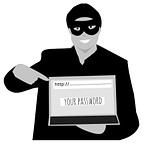Scammers Everywhere: How to Avoid Being Scammed
Fraud and identity theft is growing as highly competent fraudsters make every effort to take advantage of you. A recent New York Times article read, “Checks Stolen From Mail Sold Online.” Thieves either assume a fake identity and open a bank account or wash the ink off and rewrite the check.
I received a phone message from a credit card company: Did I purchase a $190 Emirate Airlines plane ticket? Another message appeared in my email: Norton antivirus was charging me $242 for additional services. Neither was valid. Text messaging is not immune either. A recent bank scam, reads, “This is Chase Bank. There is a hold on your account due to a security breach. Click here to verify your information.” Another, a package scam, reads “USPS. Since your package address doesn’t have a home number, we are unable to deliver it. Please update online.” Once you click, you’ll be asked to pay a redelivery fee, tricking you into giving your credit card number.
Constant serious threats make it essential that you incorporate fraud prevention into your daily activities.
Here are a few things you need to be mindful of:
1. Be vigilant about emails. A compromised email leads to unauthorized access to your account. Scammers mimic legitimate sites. Secure sites begin with https, not http.
2. Check to see who sent an email. Look for small typos and poor grammar. Be wary of those that solicit personal identifying information or present an urgency for any action you have to take right away. When in doubt, call the source.
3. Never give out your routing and bank account numbers, nor your Social Security or credit card numbers, over the phone. They are not requested by legitimate businesses or government offices.
4. Carefully check your credit and bank statements each month for charges not made by you, even those for small amounts.
5. If the bank calls you to verify charges and then starts asking other questions, hang up and call the phone number on the back of your card.
6. Avoid public WiFi networks. If you use
a public charger, turn off your phone. Better yet, bring your own charger to plug into an outlet.
7. Create unique passwords, different for each account. Yes, I know it’s a super pain but don’t use one password more
than once. When someone learns your password,
they commonly try it at multiple sites.
8. Get software updates whenever they are available. Updates address issues such as bugs and crashes. These antivirus updates improve products to keep you
safe from new viruses and malware.
9. Be suspicious of clicking on links.
10. Consider two factor authorization, especially for
banking and email accounts. The Washington Post says, “"This two-step process for logging into your accounts might be the single best thing you can do to protect yourself online."
11. Think about obtaining an authorization app like Duo Mobile and using a password manager. Wirecutter has reviews, recommendations and links for these types of apps and more.
12. It is better to lock your devices with your fingerprint.
13. Write checks with a gel pen, which penetrates the fiber of the paper. Ballpoint ink sits on the surface and can be chemically removed and replaced with new information.
14. Only mail checks at a post office, not a mailbox.
15. When writing the payee’s name and the amount on a check, draw a line to the end so no
additional information can be written.
16. Sign your checks the same way every time to avoid
being locked out of your account.
17. Always log off your online accounts when not
using them.
18. Implementing a credit freeze with companies like
Esperian or TransUnion makes it difficult for identity thefts to open accounts in your name.
19. Fraudsters access personal information by targeting institutions where you have provided personal data. Do not assume a phone call is legitimate because the person calling has your information. Go online, find a known number, then call to verify.
20. Do not allow anyone to access your device remotely. If a fraudster gains access to your computer they can take over your devices, view your account information and complete transactions without your knowledge.
21. If a text about a free gift or suspicious activity was sent to multiple people, delete it and block the number.
22. Filter phone messages from unknown senders
in “Settings.”
23. Enroll in text alerts. Changes to your linked bank
accounts passwords or security questions will
trigger an alert to your mobile device.
24. Subscribe to a cybersecurity company like McAfee, ClamXAV or Palo Alto Networks. They protect your computer networks, data and users from
cyberattack.
25. If someone calls you offering to recover money
you lost in a scam, hang up. AARP reports that “rebound scams” specifically target recently cheated, often older people who are not always aware they had been ripped off a first time.


